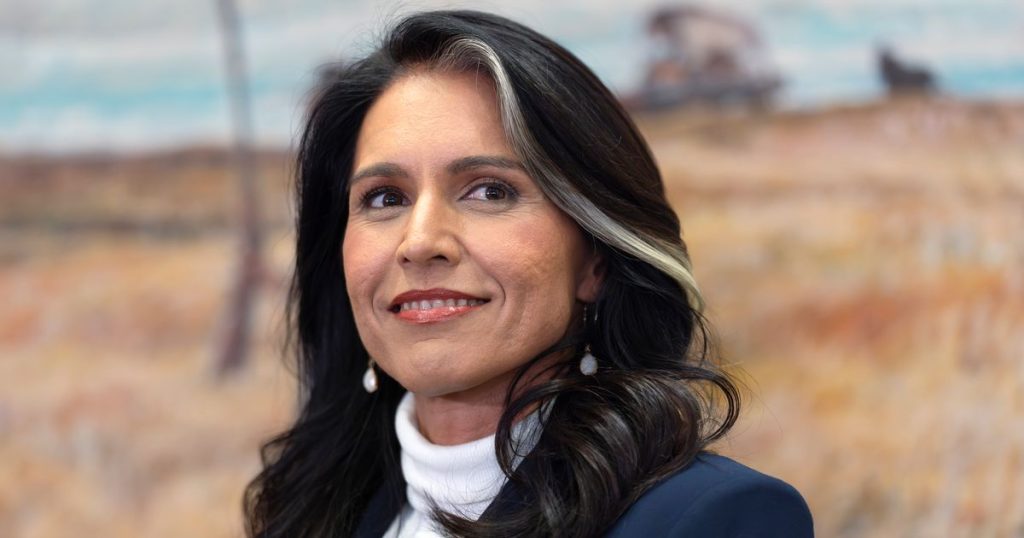The confirmation of Tulsi Gabbard as the Director of National Intelligence (DNI) under Donald Trump’s administration has sparked significant debate and scrutiny. While the Senate voted narrowly in her favor—with a 52-48 margin, largely along party lines—the decision has left many on social media and beyond questioning whether she is the right fit for such a critical role. Gabbard’s nomination and subsequent confirmation have been contentious, with her political past, policy positions, and personal views drawing both praise and criticism. As the first Hindu American and one of the youngest individuals to hold the position, Gabbard’s appointment is undeniably historic. However, the concerns surrounding her nomination highlight the complexities of her political journey and the challenges she may face in this new chapter of her career.
For many, Tulsi Gabbard’s appointment as DNI raises eyebrows due to her unorthodox political path. A former Democratic congresswoman from Hawaii, Gabbard made waves during her time in office, particularly during her 2020 presidential campaign, where she positioned herself as a maverick willing to challenge the Democratic establishment. Her critiques of regime-change wars, advocate forVeteran Affairs, and calls for bipartisan cooperation resonated with some voters but alienated others. Gabbard’s eventual withdrawal from the Democratic primary and her decision to support Donald Trump’s administration have further complicated her political identity, leaving many to wonder where her allegiances truly lie.
Gabbard’s bipartisan appeal, while a strength for some, has also fueled skepticism. Her decision to leave the Democratic Party and criticize its leadership has not gone unnoticed. Detractors argue that her shift toward the Republican Party undermines her ability to serve as an impartial director of national intelligence. This sentiment was evident in the Senate vote, where her support came predominantly from Republican lawmakers. Meanwhile, many Democrats and independents expressed concern about her ability to navigate the intelligence community’s sensitive mandate, given her history of controversial statements and actions.
Beyond the political spectrum, regular citizens have also weighed in on Gabbard’s confirmation. Social media platforms have become a battleground for debates about her suitability for the role. Supporters argue that her military background as a combat Veteran and her experience on the House Armed Services and Foreign Affairs Committees make her uniquely qualified to lead the intelligence community. They also point to her commitment to reducing U.S. involvement in foreign conflicts and her focus on domestic security threats as strengths in the DNI position. On the other hand, critics highlight her past associations with authoritarian leaders, such as Syrian President Bashar al-Assad, and her stance on issues like LGBTQ+ rights, which have raised questions about her judgment and alignment with progressive values.
The broader implications of Gabbard’s confirmation extend beyond her personal profile. As DNI, she will oversee the nation’s intelligence apparatus, playing a crucial role in shaping national security strategy and advising the President. Given her history of challenging the intelligence community’s consensus on issues like Russia’s interference in U.S. elections, her tenure could signal a shift in how intelligence is gathered, analyzed, and presented to policymakers. For supporters, this represents a much-needed shake-up of a system they see as entrenched and out of touch. For critics, it raises the specter of politicized intelligence, where facts are bent to serve political agendas rather than inform sound decision-making.
Moving forward, Tulsi Gabbard’s success as DNI will depend on her ability to bridge divides and earn the trust of both lawmakers and the public. Her confirmation is a reflection of the deeply polarized political climate in which we live, where even the most critical appointments are litmus tests for partisan loyalty. Whether she can rise above these divisions and lead the intelligence community effectively remains to be seen. For now, the debate over her appointment serves as a reminder of the high stakes involved in shaping U.S. national security and the enduring challenges of navigating a fractured political landscape. As the nation watches Gabbard’s tenure unfold, one thing is clear: her appointment has already sparked a conversation about the role of intelligence in democracy—and the kind of leadership America needs in these uncertain times.
